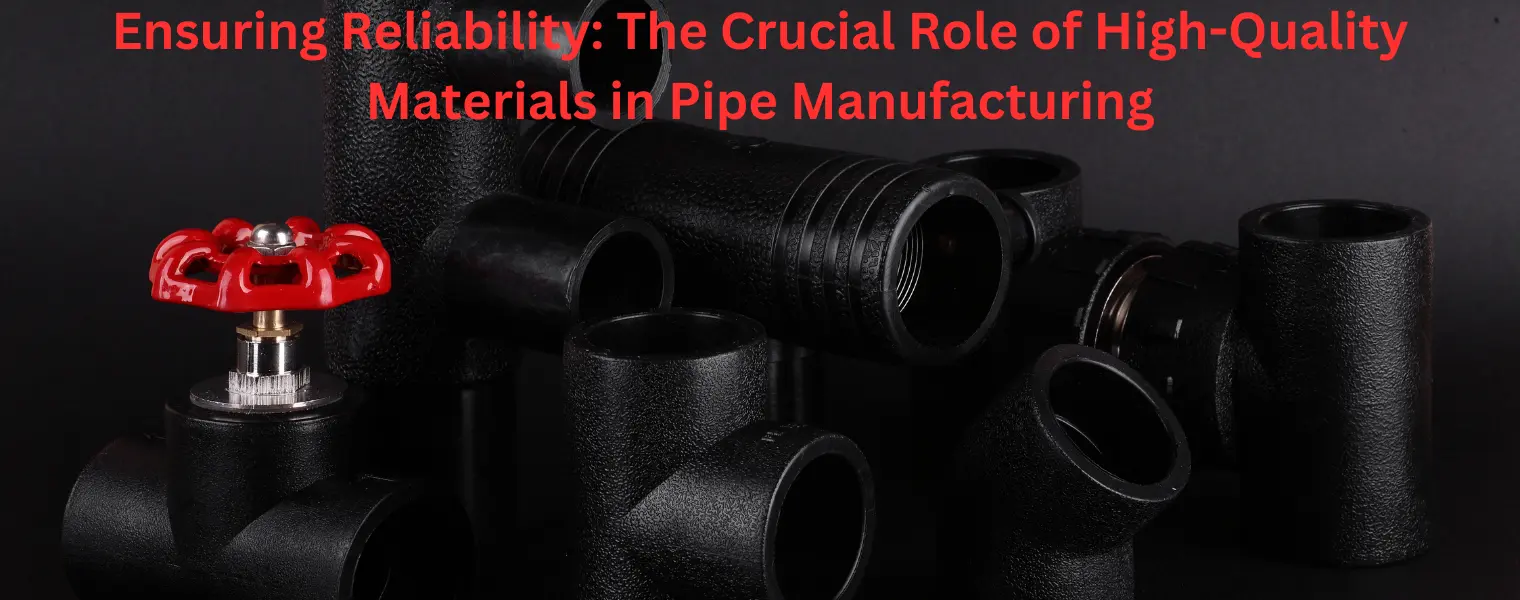
Within the intricate network of plumbing systems that thread through our residences, businesses, and infrastructure, the often-overlooked heroes are the pipes themselves. Operating silently, they bear the responsibility of facilitating the smooth flow of water, gas, and other vital substances. At the core of their dependability lies a pivotal factor — the quality of materials used in their manufacture.
High-quality materials stand as the foundation for pipes that are robust and resilient. Whether in a household plumbing system or an industrial pipeline, the selection of materials significantly influences the longevity and effectiveness of the entire network. Pipes crafted from superior materials withstand the rigors of time, resisting corrosion, degradation, and wear.
Corrosion poses a primary challenge for pipes, particularly in environments with fluctuating temperatures and exposure to various chemicals. Premium materials, such as corrosion-resistant alloys or PVC (Polyvinyl Chloride), create a protective barrier, warding off the gradual erosion that could compromise the structural integrity of pipes. PVC Pipes not only ensures a prolonged lifespan but also reduces the need for frequent replacements and repairs.
In the intricate labyrinth of plumbing, where fluids traverse under diverse pressures, the material choice becomes critical. High-quality materials showcase superior tensile strength and resilience, empowering pipes to endure the stresses associated with fluctuating pressure levels. This not only averts leaks and bursts but also enhances the overall efficiency of the plumbing system.
Inferior materials may exhibit inconsistencies in composition, resulting in weak points within the pipe structure. Stringent quality control in manufacturing processes guarantees that each pipe meets exacting standards, ensuring uniform strength and performance. This consistency proves essential, especially in applications where precision and reliability are paramount.
The impact of pipe manufacturing extends beyond the confines of our buildings. High-quality materials often align with sustainable and environmentally friendly practices. For instance, the utilization of recyclable materials in pipe manufacturing contributes to a reduced ecological footprint for the industry. Opting for materials with minimal environmental impact not only benefits the planet but also aligns with the increasing demand for sustainable infrastructure.
While initial costs may be a factor, investing in pipes crafted from high-quality materials proves to be cost-effective in the long run. The diminished need for repairs, replacements, and maintenance translates into substantial savings over the lifespan of the plumbing system. Moreover, the reliability of high-quality pipes mitigates the potential for unexpected disruptions, providing peace of mind for homeowners, businesses, and infrastructure managers alike.
Quality materials are paramount in plumbing systems, influencing their entire life cycle. Recognizing this importance is key for consumers, builders, and environmental custodians, shaping resilient plumbing infrastructure. The strength of our pipes mirrors the strength of our connections. Polyfab a leading supplier of customized HDPE fittings and pipes, offers excellence, personalized solutions, and top-notch customer service. Contact us for distinctive quality and service, serving clients globally. Connect with our skilled sales team for more information.